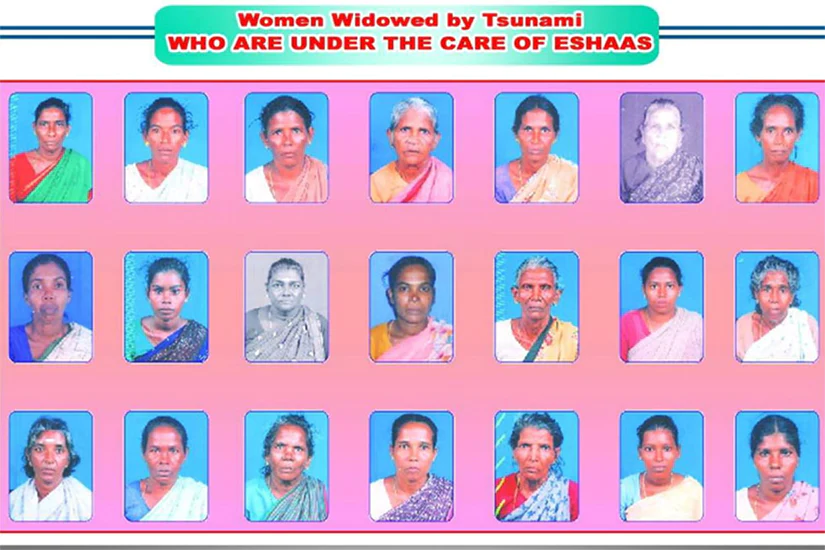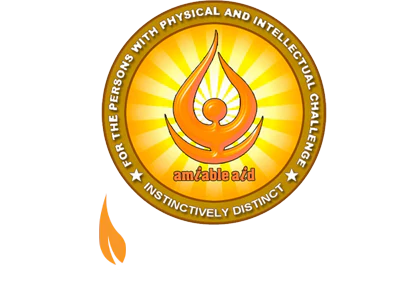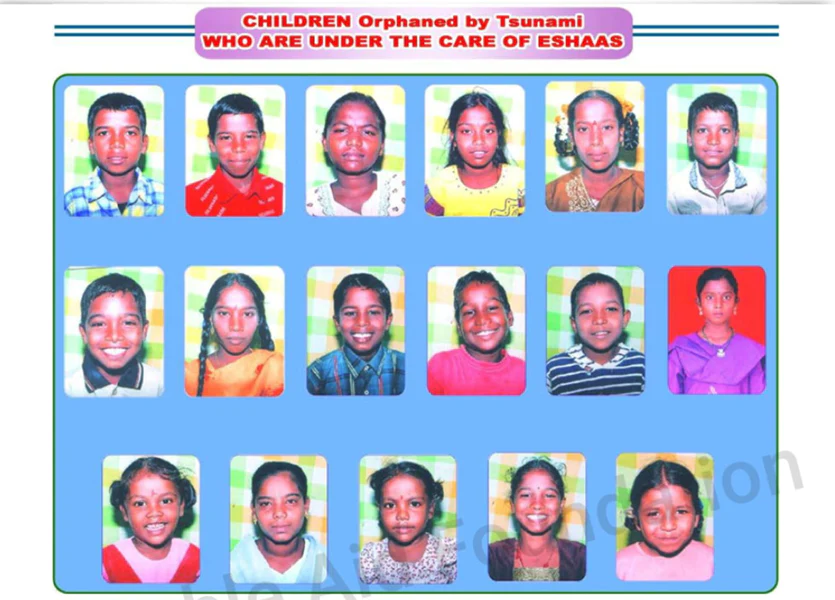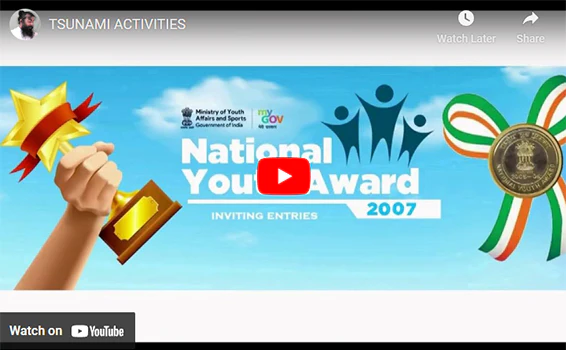AMIABLE AID FOUNDATION
Bridgehead
BRIDGEHEAD: Amiable Aid
Amiable Aid Child Welfare Support
“…The children of slum live out in the open, have little or no food to eat, bearing the brunt of nature’s fury and poverty, sharing space with beggars, and during the months it rained, sleeping the nights in any dry, unhygienic place they find…”
In implementing various tsunami relief and rehabilitation programmes amiableAID noted a particular problem of access to children who had lost their parents to the tsunami waves. Given the tragic number of children who died, families were desperate to take in the children who remained. The standard of living for these foster families was difficult enough to accommodate and care for the additional children.
AmiableAID adopted tsunami-affected parentless children ages 3-12 and placed them with families who had lost siblings to the tsunami, and provided foster families with access to financial assistance. There were many other orphans whose needs went unaddressed. amiableAID continuously represented the government, which took up the cause of these children to create a permanent policy framework. The struggle ended only after the government established a Social Trust for the welfare of children affected by the tsunami, which took in all children in this category. The Social Trust is still working effectively and enjoys worldwide attention.
AmiableAID Volunteering Women’s Empowerment

When amiableAID began working with the women in the tsunami-affected areas, discovered to surprise that although they lived near the sea, the women and girls did not know how to swim. This was one of the reasons why many women died during the tsunami.
After the tsunami, the physical safety of widows and single women was at risk as cases of domestic violence increased. Due to the death of male breadwinners, widows were forced to take on a dual role: They earned the family income while caring for children and the elderly.
AmiableAID worked to restore the earning capacity of women widowed by the tsunami whose livelihoods were damaged or destroyed.
AmiableAID encouraged, trained, and arranged financial assistance for these women to engage in economic activity, which resulted in these women’s were able to take charge of their own recovery and are not seen as helpless victims and passive recipients of aid.
They are able to take care of their household needs and are recognized as responsible and rational economic actors.
And they have regained their dignity. They are the driving force in the restoration – not only of the physical infrastructure, but also of families and communities.
Welfare of the physically challenged persons
“Persons marked by an infirmity like blindness, deafness etc., depend more than ordinary persons do for their happiness and for their support upon the ties of kindred, of friendship, and of neighborhood. All these therefore, ought to be nourished and strengthened during childhood and youth – for it is then they take such deep root as to become strong and life-lasting.”
AmiableAID always defending the interests of the persons with physical challenge, striving for them to get equal opportunities, disabled friendly scientific and technological devices stressed upon to enable them to cope with problems, encouraging work – therapy which provides disabled persons with work experience in a real working environment ultimately leading to placement.
An unexpected event like tsunami has aggravated the vulnerabilities to recurrent hazards of the disability sector at Nagapattinam, which has already been in the lower levels of the development process in this area. amiableAID has imparted vocational training and arranged micro-finance to start their own business to physically challenged persons of various categories viz., orthopedic, blind, deaf, dwarf, fire injured.
Created history in the aftermath of tsunami
After the initial shock of the tsunami subsided, the question of livelihood arose for the fishing community. The prevailing opinion was that sustainable reconstruction would not be possible unless the fishermen went out to sea and resumed their regular business. Fear of a tsunami and lack of resources for fishing kept them away from the sea even after months of appeals from the government.
AmiableAID persistently counseled and motivated 50 fishing families and procured boats, nets, and other equipment for them from various NGOs, resulting in the first group of 10 boats with 50 crew members going out to sea to fish. This was the first time such an operation took place in the Nagapattinam region after the tsunami. It was only after this event that fishing gradually resumed throughout the coastal belt.
Coordination of a Guinness World Record event
In memory of the South Asian tsunami victims, 254,464 saplings were planted by 300 people in Pushpavanam village in Nagapattinam district within 24 hours between 01 and 02 October 2005. The founder of amiableAID coordinated the programme, which was initiated by the Nagapattinam District Administration and sponsored by Bilai Institute of Technology. Later, this event was recognised by Guinness World Records Ltd. as the world record for “most trees planted by 300 people in 24 hours.” The reforestation programme, launched as a memorial to tsunami victims around the world, ended with a Guinness World Record.
Rebuilt tourist resort devastated by the tsunami
The tsunami had wreaked havoc on the proud beach of Nagapattinam, washing away all the buildings. At one time, amiableAID was instrumental in the creation of this pre-tsunami tourist resort, which preserved socio-culture in this region where heritage preservation initiatives, even in the best of times, are hampered by lack of funding and conflicts between ideological positions. The project was realised only with great difficulty. To rebuild it, amiableAID highlighted the need, requested permission from the government, raised funds from many agencies, and realised an auditorium, a restaurant, children’s playground equipment, a park, a tsunami memorial dome, and toilets on the beach.
Installation of a water desalination plant in government Hospital
On Boxing Day, tsunami water entered the Nagapattinam Government Hospital and salinated the groundwater. AmiableAID supported Periyar Maniyammai University of Technology, Thanjavur in its tsunami reconstruction programmes and with the support of college of Engineering, San Diego State University; with the materials of M/s Pure O Tech, Inc CA92029, a water purification plant with a capacity of 16,000 litres/day was installed in the government hospital.
AmiableAID recovered, buried and cremated thousands of corpses from few minutes to 9 days after the tsunami disaster.
AmiableAID renovated urban schools destroyed by the tsunami and provided emergency shelter to 50 tsunami-affected families.
AMIABLE AID’S TSUNAMI RESPONSE
The fast-moving wall of water that rolled in from the ocean on December 26, 2004, break with terrifying force over the once quiet and beautiful district of Nagappattinam with terrifying force.
The December tsunami acted with hazardous impartiality, wrecking fishing villages, killing tourists and subsistence level coastal farmers, flooding the sites of past colonial elites, and wading away relics.
Having extracted a toll of thousands of lives while leaving behind much more homeless, emotionally devastated survivors, reminded the people of the Indian Ocean of the rim road of the capricious natural forces against which all hopes for development are phrased.
Our Amiable Aid Foundation, volunteered/participated/organised/performed/sponsored in collaboration with relief organisations and government officials working in the aftermath of the disaster to address the larger death toll, the damage to settlements, the reorientation and rehabilitation of those who were spared, and the rebuilding of a sense of safety and community. Our area of operation was the coastal districts in the state of Tamilnadu, India.
The list of activities carried out since the first day of the tsunami is provided here to give an overview of the services provided.
- Establishment of special homes for orphaned adolescent girls between the ages of 14 and 18 and unmarried girls over the age of 18, providing them with clothing, social protection, and skill development activities that will lead to income-generating programmes and enable them to study.
- Re-chanellising surgical procedures to reproduce mothers who lost their siblings to the tsunami waves.
- Removal of debris, recovery of bodies, preparation for burial/cremation of the dead.
- Rescue of survivors, medical care for the injured, provision of clothing, food and water
- Construction of makeshift bridges and roads for access to coastal villages inundated by seawater.
- Housing survivors in safer places such as schools, wedding houses and public buildings, providing food and clothing.
- Setting up emergency shelters where each surviving family received a boot, kerosene, palm oil, salt, turmeric powder, tamarind, sugar, tea dust, powdered milk, and dry chilies.
- Free books and uniforms were distributed to affected children, duplicate school certificates were issued to those who had lost their original certificates in the tsunami disaster, and exemption from school, special and examination fees was organised for tsunami-affected students.
- A comprehensive counselling and support programme was initiated to restore confidence in the affected people.
- Men, women and children nursed back to a normal level of self-confidence after the trauma.
- Capacity building and implementation support in the form of planning, construction, monitoring, technical advice and phased disaster management.
- Approval of the relief package for families returning to Nagappattinam from the comparatively worst affected Andaman Nocobar Islands.
- The Tsunami Emergency Relief Programme accelerated economic growth and poverty reduction in tsunami-affected areas by supporting livelihood restoration, especially for the poor, and complementary rehabilitation and reconstruction of damaged public infrastructure; restored livelihoods; improved transport infrastructure such as roads, bridges, and ports; and improved rural and municipal infrastructure such as water supply and sanitation.
- Emergency assistance for implementing agencies for partially damaged mechanised fishing boats and for the construction of new boats to replace fully damaged boats – approved.
- Assistance package for fishermen who lost their landing sites, ports and launching sites damaged by the tsunami – provided.
- Assistance package for owners of mobile/temporary stores and pukka stores – approved.
- Assistance for property damage to small business owners, such as owners of shrimp and crab farms, owners of fish farms, owners of marine materials transportation companies, ice cream manufacturers, etc., who lost their assets to the tsunami – appropriated
- Restoration of cross walls in salt pans damaged by the tsunami.
- Assistance to small businesses that were affected by the tsunami – provided
- Acquisition of land for construction of permanent houses, repair/reconstruction of damaged houses – arranged.
- Support for reclamation of tsunami-affected sand and salt marshes, assistance for loss of livestock and support for affected farmers – organised
- Construction of walls to prevent water from entering coastal villages, planting of organic areas.
- Construction of schools, day care centres, hospitals, primary health centres, community centres, vocational training centres, etc. in tsunami-affected areas. Establishment of special kindergartens in the tsunami-affected areas.
As is evident from the worldwide response to the tsunami emergencies which brought out best in human nature, compassion, determination and heroism come out on behalf of others.
The Amiable Aid Foundation’s immediate efforts and rehabilitation efforts have been recognised from many quarters around the world.
PLEDGE YOUR SUPPORT
Support GITGOH: GIve The Gift Of HealtH!
Transform health tourism in Tamil Nadu with us. Exceptional facilities await you in the serene Aghamalai Hills:
Poongaviyam Haven: Senior care.
Azure Bliss: A tranquil sanctuary for holistic recovery.
Milirkanagam: Ancient healing and Tamil Siddhar wisdom.
Aghamalai Pizhisal: Revitalizing therapies and more.
White Noise Breathing: Siddhar's path of meditation.
Milirkanagam and white noise breathing promote well-being. Our approach combines medication and meditation for rejuvenation. Milirkanagam Strengthen us, fight disease and relax with calming white noise breathing. Experience a unique wellness journey that combines ancient and modern practices. Support GITGOH for better health.
Get In Touch
Amiable Aid Foundation
Aghamalai Road, Sothupparai Dam, Periyakulam Taluk, Theni District - 625601
It is a noble endeavor taking shape in this present period that everyone should be proud to participate in and contribute to.
Support our project to enhance well-being, boost the local economy, and preserve Tamil Nadu's cultural heritage. Funders gain exclusive access to these exceptional facilities.
Join us in creating a lasting legacy of health and wellness. Give the Gift of Health through GITGIOH!
Invest in the future of health tourism. Contact us for more information.

Dear Friend,
To experience the website, please turn on the volume.
If you plan to visit the website with volume muted, please click here.


























